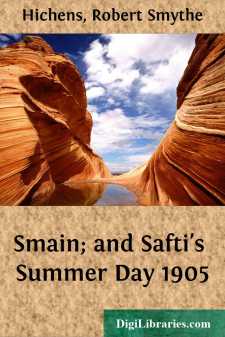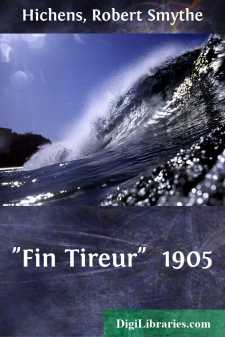Categories
- Antiques & Collectibles 13
- Architecture 36
- Art 48
- Bibles 22
- Biography & Autobiography 813
- Body, Mind & Spirit 142
- Business & Economics 28
- Children's Books 15
- Children's Fiction 12
- Computers 4
- Cooking 94
- Crafts & Hobbies 4
- Drama 346
- Education 46
- Family & Relationships 57
- Fiction 11828
- Games 19
- Gardening 17
- Health & Fitness 34
- History 1377
- House & Home 1
- Humor 147
- Juvenile Fiction 1873
- Juvenile Nonfiction 202
- Language Arts & Disciplines 88
- Law 16
- Literary Collections 686
- Literary Criticism 179
- Mathematics 13
- Medical 41
- Music 40
- Nature 179
- Non-Classifiable 1768
- Performing Arts 7
- Periodicals 1453
- Philosophy 64
- Photography 2
- Poetry 896
- Political Science 203
- Psychology 42
- Reference 154
- Religion 513
- Science 126
- Self-Help 84
- Social Science 81
- Sports & Recreation 34
- Study Aids 3
- Technology & Engineering 59
- Transportation 23
- Travel 463
- True Crime 29
Smain; and Safti's Summer Day 1905
Categories:
Description:
Excerpt
SMAÏN
"When the African is in love he plays upon the pipe."
Sahara Saying.
Far away in the desert I heard the sound of a flute, pure sound in the pure air, delicate, sometimes almost comic with the comicality of a child who bends women to kisses and to nonsense-words. We had passed through the sandstorm, Safti and I, over the wastes of saltpetre, and come into a land of palm gardens where there was almost breathless calm. The feet of the camels paddled over the soft brown earth of the narrow alleys between the brown earth walls, and we looked down to right and left into the shady enclosed spaces, seamed with water rills, dotted with little pools of pale yellow water, and saw always giant palms, with wrinkled trunks and tufted, deep green foliage, brooding in their squadrons over the dimness they had made. The activity of man might be discerned here in the regularity of the artificial rills, the ordered placing of the trees, each of which, too, stood on its oval hump. But no man was seen; no flat-roofed huts appeared; no robe, pale blue or white, fluttered among the shadows; no dog blinked in the golden patches of the sun—only the sound of the flute came to us from some hidden place ceaselessly, wild and romantic, full of an odd coquetry, and of an absurdity that was both uncivilised and touching.
I stopped to listen, and looked round, searching the vistas between the palms.
"Where does it come from?" I asked of Safti.
His one eye blinked languidly.
"From some gardener among the trees. All who dwell in Sidi-Matou are gardeners."
The persistent flute gave forth a shower of notes that were like drops of water flung softly in our faces.
"He is in love," added Safti with a slight yawn.
"How do you know?"
"When the African is in love he plays upon the pipe. That is what they say in the Sahara."
"And you think he is alone under some palm-tree playing for himself?"
"Yes; he is quite alone. If he is much in love he will play all day, and, perhaps, all night too."
"But she cannot hear him."
"That does not matter. He plays for his own heart, and his own heart can hear."
I listened. Since Safti had spoken the music meant more to me. I tried to read the player's heart in the endless song it made. Trills, twitterings, grace notes, little runs upward ending in the air—surely it was a boy's heart, and not unhappy.
"It is coming nearer," I said.
"Yes. Ah, it is Smaïn!"
Safti's one eye is sharp. I had seen no one. But as he spoke a tall youth in a single white garment glided into my view, his eyes bent down, his brown fingers fluttering on a long reed flute covered with red arabesques. His feet were bare, and he moved slowly.
Safti hailed him with the accented violence peculiar to the Arabs. He stopped playing, looked, and smiled all over his young face. In a moment he was on our side of the earth wall, and talking busily, staring at me the while with unabashed curiosity. For few strangers come to Sidi-Amrane, and Smaïn had never wandered far.
"What does he say?" I asked of Safti....












